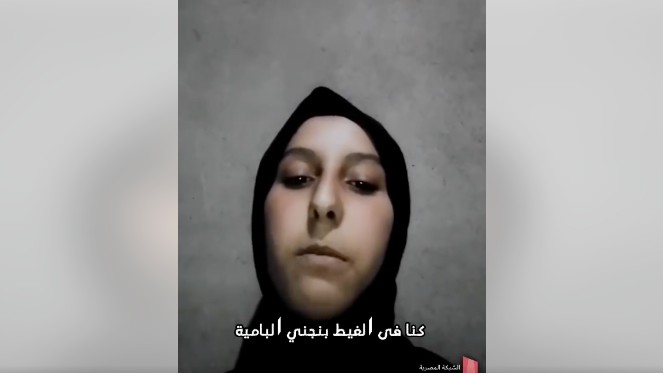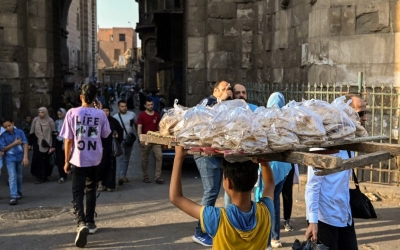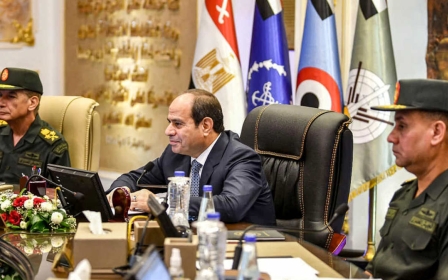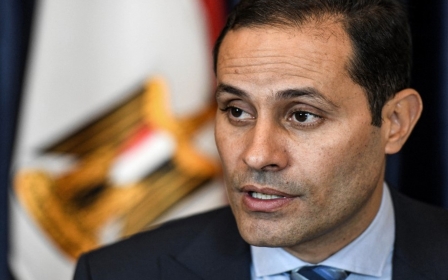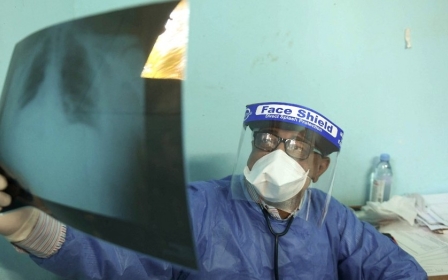Egypt: Girl ‘forcibly disappeared’ after demanding justice for father killed by police
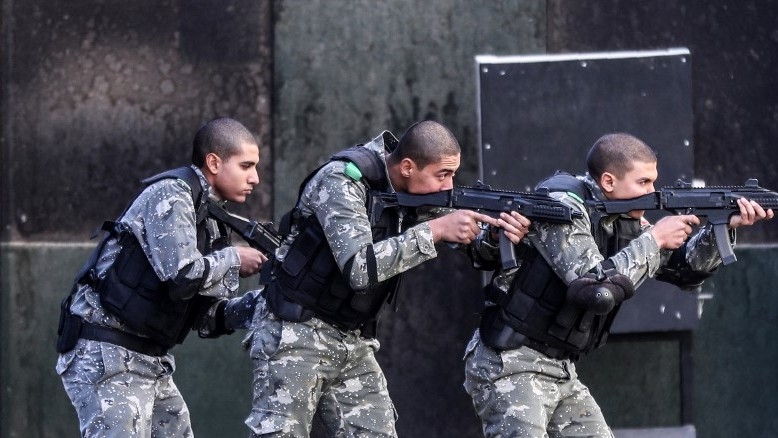
Egyptian security forces killed a farmer then forcibly disappeared his daughter who spoke out about his case, a rights group said Monday.
Last Monday, 50-year-old Ali Shaaban Farhan Salem was killed by police forces in broad daylight with a “close-range bullet to his head", a rights group has said, citing his daughter’s eyewitness account of the incident that took place in Asyut, Upper Egypt.
Following the incident, his 16-year-old daughter Nadia Salem spoke in a Facebook video circulated by the Egyptian Network for Human Rights (ENHR), in which she documented what happened to her father and demanded a trial for the killers.
Nadia has been forcibly disappeared since 1 June, the day after the video was posted, according to ENHR.
The London-based rights group reported that Nadia, who lives in Arab Al-Matir village in Asyut, was forcibly disappeared shortly after she and her uncle were called into police headquarters for questioning.
New MEE newsletter: Jerusalem Dispatch
Sign up to get the latest insights and analysis on Israel-Palestine, alongside Turkey Unpacked and other MEE newsletters
The ENHR added that she continues to be held incommunicado without legal basis, with police denying responsibility for her disappearance.
Daughter's testimony
According to Nadia, at approximately 12:30 in the afternoon of 27 May, her father Salem was shot dead at close range by members of the Sahil Salim police station while he was picking okra with his daughter and brother.
Following the assault, police authorities threatened the witnesses, and loaded the body into a police vehicle, accusing Salem of possessing weapons and drugs, and of resisting authorities.
Several eyewitnesses denied the accusations made by police, according to ENHR.
"The ENHR reiterates its rejection of the use of excessive force and murder by members of Egypt's police and security," the rights group said in a statement.
"The claim that victims first shot [at] security forces contradicts the truth and eyewitness accounts," it added.
Nadia was detained after she posted her eyewitness report of the incident, demanding a formal trial for the police forces responsible for the broad-daylight killing of her father and for firing repeatedly at her and another eyewitness.
Alongside other witnesses, Nadia reported that her father, a social worker who was farming at the time in an agricultural plot that he owned, was not armed, nor did he resist authorities.
Nadia stated that her father was attempting to “move his tricycle out of the way” of a car from which police then emerged, shooting him dead.
She then stated that as she and her uncle Abdul Karim Farhan attempted to help her father, another police car drove by and shot at them “from all directions".
She ended the video by calling for “the person who killed (her) father to be sent to trial”.
Under President Abdel Fattah el-Sisi, thousands of cases of arbitrary detention have been reported, with many detainees remaining in jail for years.
Cases of forced disappearance are not uncommon, and some detainees remain missing for weeks and even years.
Sisi, set to rule until 2030, secured a third term in December after a decade of political repression and economic malaise.
Egyptian opposition politician Ahmed Tantawy, who challenged Sisi in the December election, was recently arrested and fined for allegedly circulating election-related papers without official approval.
Middle East Eye delivers independent and unrivalled coverage and analysis of the Middle East, North Africa and beyond. To learn more about republishing this content and the associated fees, please fill out this form. More about MEE can be found here.


